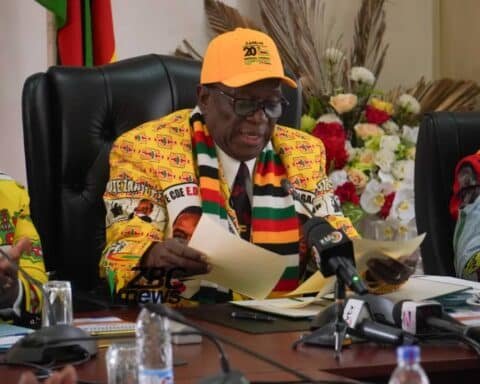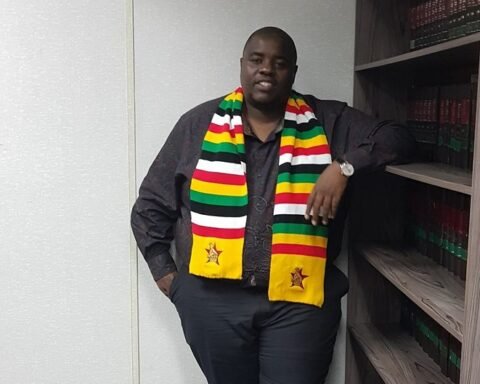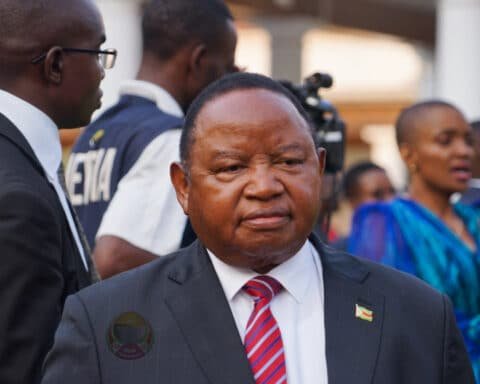The recent passing of Namibian President Hage Geingob marks a significant setback for Zimbabwe in its ongoing battle against Western-imposed sanctions, according to Zimbabwean President Emmerson Mnangagwa. Speaking after his eulogy at President Geingob’s state funeral, Mnangagwa expressed deep sorrow over the loss, emphasizing the critical role Geingob played in advocating for the removal of these sanctions on the international stage.
President Geingob, who passed away at the age of 82 after a battle with cancer, was a staunch ally of Zimbabwe, frequently using his platform at the United Nations to call for the lifting of sanctions against the Southern African nation. His efforts were highlighted as particularly impactful, given the global attention and authority of the UN platform.
“President Geingob was more than a friend to Zimbabwe; he was a leading voice in our quest to see sanctions removed. His advocacy was unwavering, and he consistently called for these sanctions to be lifted unconditionally,” Mnangagwa stated. This loss is felt deeply by Zimbabwe, which viewed Geingob’s support as a cornerstone of its anti-sanctions campaign.
The sanctions in question, often criticized by Zimbabwe and its allies as unfair and politically motivated, have been a source of significant economic strain for the country. The departure of Geingob, one of the few African leaders openly challenging these sanctions, is seen as a blow to Zimbabwe’s efforts to galvanize international support for their removal.
Mnangagwa’s reflections on Geingob’s support underscore the importance of international solidarity in Zimbabwe’s sanctions struggle. As the country mourns the loss of a key ally, the challenge ahead is to continue advocating for the cause Geingob championed so fervently.
The state funeral of President Geingob, attended by 18 foreign heads of state, not only commemorated his life and legacy but also served as a reminder of the diplomatic battles fought on platforms like the UN. As Zimbabwe continues to navigate the complexities of international politics and sanctions, the memory of Geingob’s steadfast support offers both consolation and inspiration for ongoing efforts.


